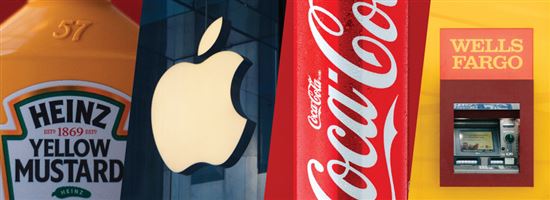How to Invest in Berkshire Hathaway
Berkshire Hathaway is the most expensive stock in the world. Read on to learn how to invest in Berkshire Hathaway with as little as $1.
 |
Led by legendary investor Warren Buffet, Berkshire Hathaway is one of the world's largest conglomerates, owning some of the most recognized companies, like Geico, Dairy Queen, and Duracell.
Berkshire Hathaway has been consistently beating the market since 1965, leading with an 11.9% market share in the last quarter of 2022.
Fun fact: it started out as a textile manufacturer until Buffet bought so many shares that he took over the company in 1965. Since then, the company's stock price has skyrocketed to astronomical proportions.
So is it still possible to invest in it? Luckily yes! Read on for everything you need to know to invest in Berkshire Hathaway.
Is Berkshire Hathaway on the stock market?
Yes, Berkshire Hathaway is publicly traded on New York Stock Exchange (NYSE). It issues two types of stock, Class A (BRK.A) and Class B (BRK.B). The differences lie mainly in their prices, voting rights, and convertibility.
Today, the main Berkshire Class A stock is the highest priced stock by miles - trading at over $503,000 per share as of May 1, 2023.
In order to provide a more affordable option to everyday investors, Buffet issued the Berkshire Class B shares in 1996. This stock is much more attainable, at a little over $325 per share (as of same date).
Let's have a quick overview of their differences to help you decide which is best for you.
BRK.A or BRK.B, which one should I buy?
When deciding between BRK.A and BRK.B, investors should consider their investment objectives and risk tolerance.
Class A and Class B are very similar, except for the significant price difference. Class B requires lesser capital and offers more liquidity since the shares are more affordable.
On the other hand, Class A requires higher capital, but it has more voting rights than Class B. Another plus is you can convert it to Class B shares anytime. But Class B shares cannot be converted to Class A.
Warren Buffett owns the largest portion of Berkshire Hathaway. His filing with the SEC reveals that he owns 37.4% of the outstanding Class A shares and less than 0.01% of the outstanding Class B shares.
He also controls about 30.9% of the total voting power of both classes and holds approximately 15.6% of the economic interest of the outstanding shares of both classes. [1]
Once you decide on which share you want to buy, you must choose the right brokerage account for your purchase. Here's how.
How to Buy Berkshire Hathaway Stock
You can buy Berkshire Hathaway stock using any brokerage or trading app. There are no special qualifications needed.
1. Create an Account with a Brokerage
Before you can start investing in Berkshire Hathaway, you will need to create an account with a brokerage firm or trading app. You can visit the brokerage's website or app and follow the instructions there to set up your account.
Typically, you'll need to provide:
- Your name
- Social Security number
- Address, phone number, and email
- Date of birth
You may also need to provide a copy of your driver's license or passport to verify your identification.
Don't have a ton of money to invest? Look for a brokerage that supports fractional shares. This means you can purchase just a tiny piece if you don't have enough money for a full share. This lets you to still invest in Berkshire Hathaway even if you only have $10.
Deposit $5,000 and Get 60 Free Stocks plus 8.1% APY on uninvested cash
Enroll in Cash Sweep to enjoy 4.1% APY base rate plus 4.0% APY booster for the first 3 months on up to $20k after opening your account
Make a net deposit of $5,000 or more to receive 60 draws, each for a free stock worth $2 - $2,000 each. Maintain average assets totaling $5,000 or more for 60 days to unlock the free stocks. Terms and conditions apply.
20 Free Fractional Shares
Open a new Webull individual brokerage account. Make a qualifying single initial deposit of $500 or more during the promotional period to get 20 fractional shares, each valued between $3 - $3,000. Maintain a balance of $500 or more in the account for 30 days or more. Terms and conditions apply.
- Taxable: A general-purpose investment account
- Joint: An account shared between two individuals
- Retirement (includes Traditional and Roth IRA)
- 529 College Savings
- Custodial: An account set up for a minor
Keep reading for our top recommended brokers to buy Berkshire Hathaway stock.
2. Fund Your Account
Once your account is created, you will need to fund it to start trading. Just link it to your bank account so you can transfer money. Depending on the brokerage, you may need to deposit a minimum amount to start trading.
Be sure to read through the terms and conditions of the platform carefully before making any investments.
Now, you can start investing in Berkshire Hathaway stock.
3. Search for BRK.A or BRK.B
Once you've funded your account and are ready to buy, search for Berkshire Hathaway stock using their ticker symbol BRK.A or BRK.B.
The company should appear, along with Berkshire Hathaway's other relevant data, such as current stock price and daily average volume.
Click on the company listing for more detailed information, including news updates and analyst ratings. It's smart to research the company and consider any risks before investing.
4. Decide how much to buy
The next step is deciding how much Berkshire Hathaway stock you want to buy. Most platforms will let you enter how many shares or the exact dollar amount you want to buy.
For example, if the investing app allows for fractional shares, you can say you want to buy $50 worth of BRK.A or BRK.B (instead of full shares).
After entering the details, you are now ready to place your order.
5. Place your order
Once you have entered all the information, review it one last time and click 'place order' to complete your purchase of Berkshire Hathaway stock. Your order will be processed in a few minutes, and you will receive a confirmation when it has gone through.
After that, you can view your holdings in your account portfolio and track their performance over time.
- Market order: Execute the transaction now at the current market price.
- Limit order: Set a specific price at which you wish to buy. This gives investors more control. But if the stock never hits your price, the trade will never be executed.
Best Brokerages to Invest in Berkshire Hathaway
Fund Account and Get Up to $12,000 Bonus
Open a new eligible Webull account. Fund the account with one or more qualifying deposits totaling $5,000 or more. Maintain a net qualifying funding amount of at least $5,000 in the account until the payment of the final installment of the offer reward. The offer reward will be credited to the eligible Webull account in 12 equal monthly installments, with the first installment issued within 45 days after the end of the offer period. To participate in this offer, you must click “Enroll Today” on the website. Terms and conditions apply.
| Net Qualifying Funding Amount | Offer Reward Amount |
|---|---|
| $5,000 - $25,000.99 | $100 |
| $25,001 - $100,000.99 | $750 |
| $100,001 - $250,000.99 | $1,500 |
| $250,001 - $500,000.99 | $3,750 |
| $500,001 - $1,000,000.99 | $5,000 |
| $1,000,001 - $5,000,000.99 | $8,000 |
| $5,000,001+ | $12,000 |
Pros and Cons of Buying Berkshire Hathaway Stock
Pros:
- High shareholder returns since 1965 to present
- Invests in a large diversity of businesses and industries
- Has $128.6 billion cash and equivalents by the end of 2022
Cons:
- Warren Buffet won't be around forever
- Tends to avoid investments in tech companies
- Does not pay dividends
Why Invest in Berkshire Hathaway
Berkshire Hathaway and its subsidiaries participate in various business activities, such as insurance and reinsurance, energy and utilities, freight rail transportation, retailing, manufacturing, and services.
In their 2022 Annual Shareholder Letter, Buffet assured the investors of the company's good standing.[2] It had a $30.8 billion profit despite inflation and supply chain issues. It bought back $2.6 billion in shares and an additional $700 million in early 2023.
Also, Berkshire shares surpassed the index by 22% in 2022 as a defensive investment against the unstable market.
Positive points:
- In 2021, the S&P 500 earned $1.8 trillion. (2022 reports have yet to be made available) Of the S&P 500, including Berkshire Hathaway, only 128 earned at least $3 billion. However, 23 of them lost money.
- As of the end of 2022, Berkshire held the largest ownership of eight notable companies, including American Express, Bank of America, Chevron, Coca-Cola, HP Inc., Moody's, Occidental Petroleum, and Paramount Global.
- Berkshire owns 10 companies with earnings exceeding $3 billion each, including BNSF and BH Energy. If these were publicly owned, they would replace two members of the 500.
- Berkshire's insurance operation is also valuable.
Negative points:
- Operating profit dropped 8% to $6.71 billion in Q4 of 2022 from $7.29 billion in Q3.
- Quarterly net income dropped by 54% to $18.16 billion from $39.65 billion in 2021.
Buffett thinks net results are misleading because they include unrealized gains and losses. Overall, Berkshire is well-positioned for the country's economic future.
For wider context, let's look at Berkshire Hathaway's valuation.
What is Berkshire Hathaway's valuation?
Berkshire Hathaway is currently valued at $718.45 billion, with a massive overall gain in Market Value from 1964-2022 of 3,787,464%.[4]
This reflects that the company has been an extremely successful long-term investment, and many investors feel comfortable investing in it due to its consistently high market performance.
And its Price to Earnings ratio is recently at 22.08. It indicates that Berkshire is a safe investment in its profitability and future prospects. For example, its P/E ratio is lower than the S&P 500 Index, which currently stands at around 30. Investors see this as an opportunity to get a good return on their investment.
To better understand, here are two common ways investors measure a company's value.
- Market Capitalization (Market Value)
Market capitalization (Market value) is how we measure the size of a public company. We do this by multiplying the current stock price by the number of shares outstanding. - Price to Earnings Ratio (PE Ratio)
The P/E ratio shows if a company is undervalued or losing money. Low but positive means high earnings, while high negative means heavy losses.
- Companies with a P/E ratio above 30 or in the negative range are often labeled "growth stocks." This suggests that investors predict future growth or profitability.
- While positive P/E ratio below 10 are generally regarded as "value stocks," indicating that the company is already profitable and unlikely to see significant growth in the future.
Is Berkshire Hathaway Stock Right for You?
Don't make the buy-or-not decision purely based on the stock's current price. Instead, consider if Berkshire Hathaway is right for your goals and risk tolerance. This comes down to what kind of investor you are.
Are you looking for passive income through dividends? Despite being one of the largest blue chip companies and sitting on a mountain of cash, Berkshire Hathaway has never paid a dividend and has no plans to do so. Warren Buffet prefers to reinvest profits back into his companies.
Are you looking for a quick profit? Then Berkshire Hathaway is probably not for you. Warren Buffet is famous for his buy-and-hold investing strategy. So you should have the same approach when investing in Berkshire Hathaway.
Don't expect huge amounts of growth in a short period of time, but long-term investors will find value.
If you're not sure about Berkshire Hathaway, there are some similar companies you can consider too.
Alternatives to Berkshire Hathaway Stock
Since Berkshire Hathaway is a multi-sector company, there are also a couple of alternative companies where you can invest in.
- BlackRock (NYSE: BLK) is a company that offers a wide range of financial services and products, including mutual funds, ETFs, and asset management. It is the largest asset manager in the world with $7.3 trillion in assets under management.
- JPMorgan Chase & Co., (NYSE: JPM) is one of the largest banks in the United States. It offers banking, investment banking, lending, and wealth management services to individuals and businesses. Its current valuation is $354.4 billion.
- Allegheny Technologies Incorporated (NYSE: ATI) is also a good option if you are interested in the insurance and manufacturing industries. It is currently valued at $4.95 billion.
ATI provides various auto, home, and life insurance products. On the technology aspect, it produces specialty metals and components for aerospace, defense, and industrial industries.
Bottom Line
Investing in Berkshire Hathaway can be an excellent way to gain exposure to legendary investors and companies. Warren Buffett has had remarkable success as the head of Berkshire Hathway, consistently beating the market.
Take note also that it offers two types of stock, BRK.A and BRK.B. With proper research and professional advice, you can choose the right type for your portfolio.
Lastly, it is important to understand the company's unique structure before investing and to have realistic expectations for returns given its long-term investment approach.
References
- ^ Security Exchange Commission SEC FORM13-F Information Table, Retrieved 05/02/2023
- ^ Berkshire Hathaway 2022 Annual Shareholder Letter Berkshire Hathaway 2022 Annual Shareholder Letter, Retrieved 05/02/2023
- ^ Berkshire Hathaway 2022 Annual ReportBerkshire Hathaway Annual Report 2022, Retrieved 05/02/2023
- ^ Berkshire Hathaway 2022 Annual Report Berkshire Hathaway Annual Report 2022, Retrieved 05/02/2023
Write to Anna G at feedback@creditdonkey.com. Follow us on Twitter and Facebook for our latest posts.
Note: This website is made possible through financial relationships with some of the products and services mentioned on this site. We may receive compensation if you shop through links in our content. You do not have to use our links, but you help support CreditDonkey if you do.
|
|
|







